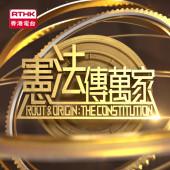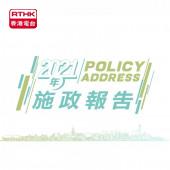 載入中 ...
載入中 ...
返回
Executive Councillor, Ronny Tong
2018-01-07
The dispute over the legality of the co-location clearance proposal comes down to one question only: is it in contravention of Article 18 of the Basic Law, which reads, “National laws shall not be applied in the Hong Kong SAR except those listed in Annex III to this Law.” In a way, this Article defines the very essence of the One Country Two Systems. But what does it mean?
Our Court of Final Appeal has repeatedly said on many occasions in interpreting our Basic Law that it is an aspirational document and one must adopt a purposive interpretation. This means that the Basic Law is forward looking and should not be enslaved by dated and historical concepts. When we read the Basic Law, we must read it as a whole and try to discern its purpose and give effect to it in accordance with such purpose. Adopting such an approach, at least one reading of Article 18 is that its purpose is not to stifle the SAR’s economic development, but to prevent applying Chinese national law to the whole of Hong Kong thereby undermining the One Country Two Systems and in particular, the rights and freedoms of the people of Hong Kong guaranteed under the Basic Law. On this reading, if the proposed co-location clearance arrangement has no such effect but on the contrary is necessitated by important economic development, then Article 18 is not engaged or contravened.
Furthermore, there is a separate legal argument that in any event, if the proposed local law is eventually passed by our Legislative Council “deeming” the immigration and custom clearance area upon being leased to mainland authorities as being outside the borders of Hong Kong, then of course, Article 18 will not be engaged either. If so, it follows that other provisions of the Basic Law, say, Articles 2, 7, 154, 118 and 119 will provide the necessary legal basis to the SAR Government to set up the co-location clearance border control. You can say this legal basis is weak, or unconvincing, or even wrong. But to say there is no legal basis at all is neither fair nor accurate. Nor can you then build on this restricted view and escalate the accusation to the level that our Rule of Law is thereby being “severely undermined”.
There is another disturbing aspect. If there is a legal basis in support of the proposal, albeit one you may not agree, and there obviously is such a legal basis, the fact that there is a certain procedure whereby the legal basis of the co-location clearance arrangement was put forward openly in writing by the State Department on behalf of the SAR Government, and officials from the SAR Government were invited to participate in meetings where the proposal was discussed, then voted upon by the NPCSC, you can’t say this is a case of “mere say so” by the NPCSC. You can disagree with the procedure, you can challenge its representativeness, or you can disagree strongly with the final decision, but such is not a case of a “mere say so”. Besides, the NPCSC is the highest executive, constitutional and legal authority in the land and its decision on any view deserves some measure of respect even if you strongly disagree with it. This is all the more so under the One Country Two Systems. Just think about it, if we do not respect the NPCSC, we are not respecting the One Country of the One Country Two Systems; and if we don’t respect the One Country, then how can we expect the One Country respect the Two Systems?
Since Hong Kong reverted to China under the concept of One Country Two Systems, some people seem to fail or choose not to appreciate that our legal system has also undergone some significant changes. They fail or choose not to appreciate that in particular, it is an accepted fact that different legal systems deal with constitutional issues differently. Under the Common Law System, constitutional issues are normally left to be dealt with by Courts under an adversarial system. In Civil Law countries, however, constitutional issues are often dealt with by a different institution, for example, a Constitutional Court under an inquisitorial system. The Constitutional Court often performs a function different from the lawmaking function of a legislature and the judicial function of a normal court. The final decision of such institution will rarely be challenged as being a breach of the Rule of Law.
China is a Civil Law country. It has a rather unique unitary system of combining the functions of a constitutional and executive authority in the body of the NPCSC. Thus, NPCSC is the highest authority in dealing with both constitutional and administrative issues. But it is not a court in the Common Law sense. It does not purport to resolve adversarial disputes of a normal court. Since Hong Kong is now part of China, Hong Kong must therefore come to recognize and accept the ultimate authority of NPCSC in constitutional matters. This is recognized in the Basic Law. Our Court of Final Appeal is delegated with power by the NPCSC to interpret provisions of the Basic Law but it plainly is not the final arbiter in issues relating to either the national constitution or provisions of the Basic Law which fall within the sphere of responsibility of the Central Government. In this way, when the NPCSC acted as a final arbiter in matters within its power, one cannot invariably say such act is a breach of the Rule of Law without more. To do so will only exemplify one’s ignorance or non-acceptance of the very necessary changes of Hong Kong’s legal system and the new constitutional order under the One Country Two Systems.
View in this light, one cannot regard every act or decision of the NPCSC to be an affront of our legal system or Rule of Law. Of all people, I certainly expect the Bar Council to be alive to this very important issue. The One Country Two Systems is an untried political experiment. It is only a matter of certainty that there will be conflicts, disagreements and even confrontation along the way. We can only make the One Country Two Systems work if we are able to tackle these problems with an open, tolerant and fair mind. Emotive and intemperate rhetoric and political slogans will only deepen the already gaping gap of distrust and divisiveness. It is a matter of regret that the Bar Council has missed a golden opportunity to show Hong Kong people the right way of resolving our problems.
Our Court of Final Appeal has repeatedly said on many occasions in interpreting our Basic Law that it is an aspirational document and one must adopt a purposive interpretation. This means that the Basic Law is forward looking and should not be enslaved by dated and historical concepts. When we read the Basic Law, we must read it as a whole and try to discern its purpose and give effect to it in accordance with such purpose. Adopting such an approach, at least one reading of Article 18 is that its purpose is not to stifle the SAR’s economic development, but to prevent applying Chinese national law to the whole of Hong Kong thereby undermining the One Country Two Systems and in particular, the rights and freedoms of the people of Hong Kong guaranteed under the Basic Law. On this reading, if the proposed co-location clearance arrangement has no such effect but on the contrary is necessitated by important economic development, then Article 18 is not engaged or contravened.
Furthermore, there is a separate legal argument that in any event, if the proposed local law is eventually passed by our Legislative Council “deeming” the immigration and custom clearance area upon being leased to mainland authorities as being outside the borders of Hong Kong, then of course, Article 18 will not be engaged either. If so, it follows that other provisions of the Basic Law, say, Articles 2, 7, 154, 118 and 119 will provide the necessary legal basis to the SAR Government to set up the co-location clearance border control. You can say this legal basis is weak, or unconvincing, or even wrong. But to say there is no legal basis at all is neither fair nor accurate. Nor can you then build on this restricted view and escalate the accusation to the level that our Rule of Law is thereby being “severely undermined”.
There is another disturbing aspect. If there is a legal basis in support of the proposal, albeit one you may not agree, and there obviously is such a legal basis, the fact that there is a certain procedure whereby the legal basis of the co-location clearance arrangement was put forward openly in writing by the State Department on behalf of the SAR Government, and officials from the SAR Government were invited to participate in meetings where the proposal was discussed, then voted upon by the NPCSC, you can’t say this is a case of “mere say so” by the NPCSC. You can disagree with the procedure, you can challenge its representativeness, or you can disagree strongly with the final decision, but such is not a case of a “mere say so”. Besides, the NPCSC is the highest executive, constitutional and legal authority in the land and its decision on any view deserves some measure of respect even if you strongly disagree with it. This is all the more so under the One Country Two Systems. Just think about it, if we do not respect the NPCSC, we are not respecting the One Country of the One Country Two Systems; and if we don’t respect the One Country, then how can we expect the One Country respect the Two Systems?
Since Hong Kong reverted to China under the concept of One Country Two Systems, some people seem to fail or choose not to appreciate that our legal system has also undergone some significant changes. They fail or choose not to appreciate that in particular, it is an accepted fact that different legal systems deal with constitutional issues differently. Under the Common Law System, constitutional issues are normally left to be dealt with by Courts under an adversarial system. In Civil Law countries, however, constitutional issues are often dealt with by a different institution, for example, a Constitutional Court under an inquisitorial system. The Constitutional Court often performs a function different from the lawmaking function of a legislature and the judicial function of a normal court. The final decision of such institution will rarely be challenged as being a breach of the Rule of Law.
China is a Civil Law country. It has a rather unique unitary system of combining the functions of a constitutional and executive authority in the body of the NPCSC. Thus, NPCSC is the highest authority in dealing with both constitutional and administrative issues. But it is not a court in the Common Law sense. It does not purport to resolve adversarial disputes of a normal court. Since Hong Kong is now part of China, Hong Kong must therefore come to recognize and accept the ultimate authority of NPCSC in constitutional matters. This is recognized in the Basic Law. Our Court of Final Appeal is delegated with power by the NPCSC to interpret provisions of the Basic Law but it plainly is not the final arbiter in issues relating to either the national constitution or provisions of the Basic Law which fall within the sphere of responsibility of the Central Government. In this way, when the NPCSC acted as a final arbiter in matters within its power, one cannot invariably say such act is a breach of the Rule of Law without more. To do so will only exemplify one’s ignorance or non-acceptance of the very necessary changes of Hong Kong’s legal system and the new constitutional order under the One Country Two Systems.
View in this light, one cannot regard every act or decision of the NPCSC to be an affront of our legal system or Rule of Law. Of all people, I certainly expect the Bar Council to be alive to this very important issue. The One Country Two Systems is an untried political experiment. It is only a matter of certainty that there will be conflicts, disagreements and even confrontation along the way. We can only make the One Country Two Systems work if we are able to tackle these problems with an open, tolerant and fair mind. Emotive and intemperate rhetoric and political slogans will only deepen the already gaping gap of distrust and divisiveness. It is a matter of regret that the Bar Council has missed a golden opportunity to show Hong Kong people the right way of resolving our problems.
Politicians and public figures from a range of backgrounds take turns to have their say on important matters of the day in this personal view programme.
Catch it live: Sunday 8:15am - 8:25am
Podcast: Updated weekly and available after broadcast.











